What are dark circles under the eye called?
We all call the smudges of darker skin below our eyes ‘dark circles’ but there is a technical name for them and it is periorbital hyperpigmentation. ‘Hyperpigmentation’ is where the skin has excess pigment in it, making it look darker than your usual skin tone, so that the hyperpigmented patch shows up as darker. ‘Periorbital’ simply means ‘around the eyes’
Does everyone get dark circles?
No, not everyone gets dark circles under the eyes, but it is a very common complaint and something that we all hate because we feel it makes us look tired even when we are not.
For many people, dark circles under the eyes are hereditary – a genetic characteristic that you inherit from your parents. Some people have dark circles under the eyes the whole time, though for most of us, dark circles show up most when we are tired and haven’t had enough sleep. At the other end of the scale, some people are just lucky and don’t get dark circles under their eyes at all.
Does tiredness cause dark circles under the eyes?
Yes, being tired is one of several possible causes of dark circles, and it’s likely that the two things are closely linked in your mind. Lack of sleep often results in a pallid skin tone, which allows the blood vessels underneath the lower eyelids to show through.
Can you permanently remove dark circles?
No. Sorry, it just can’t be done. However, there are many options out there which will help to reduce the severity and visibility of your dark circles. Read on below for more information on the skincare and tweakments that can help.
How can you get rid of dark circles fast?
The quickest way? Find a good concealer. Honestly, I’m not joking. Concealer is one of the most popular cosmetics because, patted into place beneath the eyes, it will hide the darkness and discolouration. Choose one that is the right shade for your skin tone (if you choose one that is lighter, thinking that it will tone down the darkness in the dark circles, it will just look odd) and pick one that has a creamy consistency, so that it doesn’t crease into the little lines below the eyes. Find one which contains light-reflecting particles, and it will blur any lines and hollows beneath the eyes and bounce light back in a flattering way so that your eyes look instantly fresher.
How can you prevent dark circles under the eyes?
If your issue is due to blood vessels and darker subdermal fascia showing through, there are a number of lifestyle changes you can make that will help minimise and prevent discolouration around the eyes:
- Improve your sleep. Putting dark circles to one side for a moment, a good sleep routine is one of the best things you can do for your skin, your general well-being, your mental health…the list goes on. Sleep deprivation, on the other hand, is used as a torture device, which I reckon speaks for itself. Aim for 8 hours of solid sleep – it will do wonders for your skin, improving radiance and masking those unsightly dark circles. Of course, it’s very easy to say ‘get more sleep’, but how do you actually do it? Here are some tips:
- Go to bed at the same time each night. This will stabilise your circadian rhythm so that, over time, your body knows to automatically start winding down as you approach the time you go to bed.
- Don’t go to bed with your phone. Blue light is the worst for this – as it fools your brain into thinking it’s daytime and that you need to be awake – but any light from a screen is going to confuse your brain, so put down the phone at least thirty minutes before you go to bed.
- Set the scene. You’ll get to sleep more quickly and have better quality sleep if you fall asleep in the right environment. The most important factors are light levels (keep it dark) and temperature (a touch on the cold side is better). If you’re a light sleeper then invest in some earplugs to block out excess noise that might cause you to wake up in the middle of the night.
- Get some really good bedding. OK, this can be expensive, but considering you spend at least a third of your life in bed, it’s a worthwhile investment. A good mattress is vital – a poor quality one can even lead to back problems further down the line – and some comfy pillows and duvets wrapped in cotton sheets (because cotton is breathable) will help you slip into the land of nod all the more quickly.
- Avoid anything that’s going to get your system going. For how long depends on what you’re consuming or doing. Here are some of the main ones and how long to avoid them for:
- Caffeine (6 hours);
- Nicotine (2 hours);
- Sugar (2 hours);
- High-intensity exercise (4 hours) – stretching, pilates, and yoga are fine;
- Eating heavy meals (digestion takes up to 56 hours, so there’s no magic number – just keep your dinner light);
- Too much water (2 hours) – you don’t want to wake up in the middle of the night with a full bladder;
- Alcohol (4 hours).
- Improve your diet. Lots of fruit and vegetables will boost antioxidant levels in your system, resulting in cleaner, brighter skin that doesn’t let as much discolouration show.
- Drink lots of water. I’m sure you’ve heard this before, but drinking at least 2 litres of water per day will keep your insides functioning efficiently, which shows on the outside. Healthier, brighter, more radiant skin will more effectively mask any under-eye discolouration.
On the medical side of things, keeping your skin in top condition – for example through a good skincare regime, including an antioxidant serum to strengthen skin against environmental damage and pollution, sunscreen to ward off UV rays, and regular dermatology-grade facials – will help to prevent degradation of the skin.
How can you treat dark circles naturally?
By following all the healthy lifestyle tips, above. Eating healthily, getting enough sleep and exercising will all give you the best chance of minimising dark circles under the eyes.
What skincare can you use for dark circles under the eyes?
Finding the best treatment for dark circles depends on the sort of dark circles you have. If your dark circles are caused by patches of darker pigmentation, your best bet is to start with active skincare. Preferably, look for products that have been clinically proven to reduce pigmentation in the skin. Skin care professionals may recommend creams containing cysteamine, which helps soften excess pigmentation. Dermatologists can prescribe creams containing 4% hydroquinone, which is the gold-standard treatment for reducing pigmentation in the skin. Over-the-counter products containing retinol can also make pigmentation more even, but go carefully when using retinol around the eyes and start gradually, with a product specifically formulated for use in the eye area.
Things to try:
- Antioxidant serums e.g. Neostrata Enlighten, which strengthen the skin
- Skincare with retinol, which encourages the growth of collagen;
- Eye creams designed to tackle dark circles, e.g. iS Clinical Youth Eye Complex or Olay’s Illuminating Eye Cream for Dark Circles; and
- Eye creams with niacinamide, an ingredient which helps lighten pigmentation, e.g. CeraVe Eye Repair Cream.
What beauty devices can help with dark circles under my eyes?
- NuFace Fix, which boosts the microcirculation in the eye area. This is sold as a line-smoothing device, and it does a good job at tightening the skin with electrical microcurrents. This makes the whole eye area look fresher and brighter, and reduces the appearance of dark circles.
- LED light masks with red and near-infrared light also help with dark circles by stimulating collagen growth in the skin, which strengthens the skin, and reduces the look of dark circles.
What tweakments can help with dark circles under my eyes?
There are several tweakments that can help with dark circles:
Many practitioners have treatment protocols involving lasers or skin peels, which can brighten the appearance of dark circles, but you will need a personal consultation with the practitioner to work out whether this is appropriate for your dark circles.
Tear trough filler: injecting tiny quantities of a soft and flexible dermal filler onto the orbital bone (the bony ridge just beneath your eye) is a popular way to treat the hollowing under the eyes that causes dark circles. It works out by smoothing out the transition between the cheek and the area beneath the eyes – if there’s a sudden drop between the cheek and the eye, the eye looks more hollow, and filler can smooth this out. You need to find a practitioner who has medical training and plenty of expertise in this particular technique as it’s not easy to get right, and bear in mind that tear trough filler only suits people with a specific type of hollowing under the eyes. If you have puffy eyes or eyebags that tend to retain water, you don’t want to have a hyaluronic acid gel (which keeps its volume by hanging on to water) injected into the area as it will just cause more swelling, which is the last thing you want.
PRP (platelet-rich plasma): Under-eye PRP is the tweakment where you have blood taken from your arm, which is then put in a centrifuge to separate out the clear plasma, which is then injected back wherever it’s needed — and it’s a great treatment for the under-eye area as this plasma is full of regenerative substances like growth factors which encourage the skin to become stronger and better hydrated. What does that do for dark circles? Stronger skin means the skin looks fresher and the dark circles are less apparent.
Injectable moisturisers: some of these ‘skin-booster’ treatments, like Belotero Revive and Teoxane Redensity 1, can be used in the under-eye area. They’re more properly known as ‘biostimulators’ and are based on a very fluid form of hyaluronic acid that encourages the skin – or more precisely the collagen and elastin in the skin – to remodel itself, which results in stronger, smoother, fresher-looking skin, and hides dark circles
Polynucleotides: an even newer form of skin-booster, these are also biostimulators made from fragments of fish DNA that kick-start regeneration in the skin. Fish DNA? Yes, I’m told it’s highly compatible with human DNA. The way they work is similar to hyaluronic-acid-based injectable moisturisers, but polynucleotides seem to make the skin revamp itself in an even more meaningful way, improving the extracellular matrix [the layer of the skin in which the fibroblasts live] as well as producing more collagen and elastin, and they’re anti-inflammatory, too. Practitioners who have taken up with them rave about their results for dark circles, so these are definitely something to consider.
Energy-based treatments: devices including lasers, ultrasound (eg Sofwave), Tixel and plasma treatment like NeoGen can all be used beneath the eyes to firm and strengthen the skin; laser can also reduce the pigmentation in dark circles – but it has to be done very gently and by an expert (if it’s overdone, you might risk developing hyperpigmentation).
Mesotherapy – Injections of a cocktail of skin-rejuvenating ingredients.
How do I hide dark circles under my eyes with make-up?
The best way to hide dark circles with make-up is to find a great concealer. There’s a reason why the YSL Touche Eclat concealer is still a best-selling product 27 years after its launch.
But your concealer doesn’t have to be an expensive one – just one that blends in with your skin tone, and which has enough pigment to cover the dark shadows that you are trying to hide. I always prefer to use a concealer with a creamy formulation, rather than one that is too solid, so that it is less likely to settle into the fine lines beneath my eyes.
If you are wearing tinted moisturiser or foundation, apply that first, because the pigment in it will provide some disguise for the dark circles. Then you will be able to see how much more coverage you need. Dab on a few spots of concealer onto the area of dark shadows, then gently blend the product into your skin, taking it up to the inner corner of the eye (adding a little lightness here will open up the eyes nicely). You can do this with a fingertip, with a blending sponge, or with a make-up brush, whichever you prefer. You want it to look seamless and fresh. Some people like to ‘set’ the concealer with a little dusting of loose powder – if that works for you, fine, but check that it isn’t making the concealer go cakey!

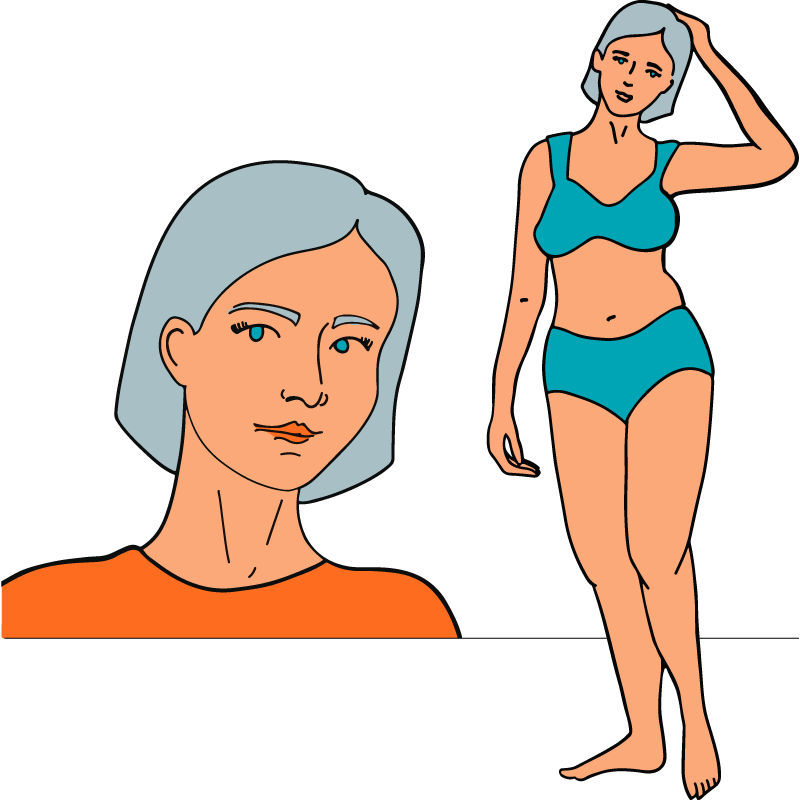

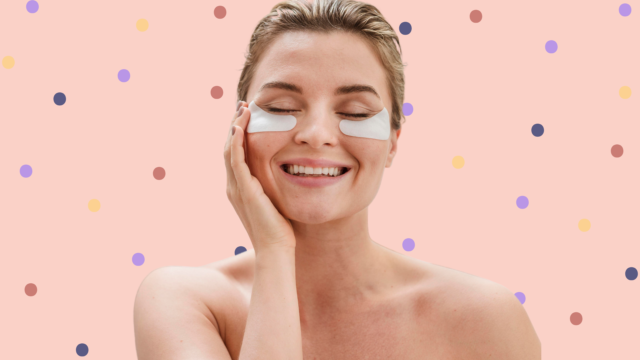
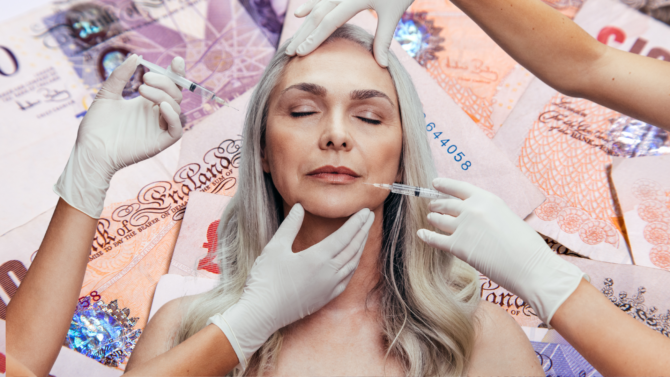
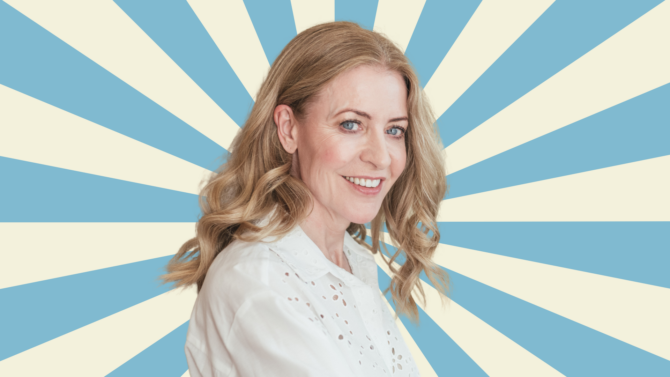
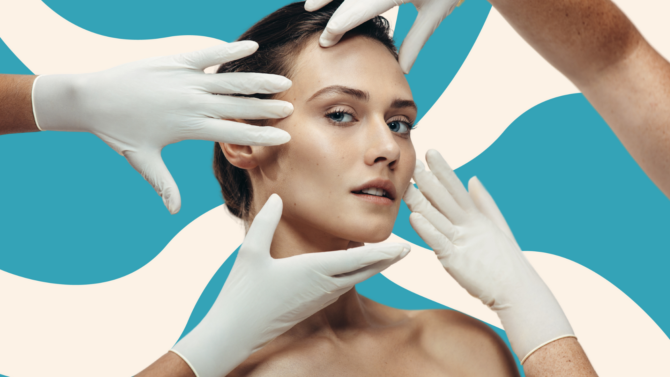
 The Tweakments Chatbot
The Tweakments Chatbot